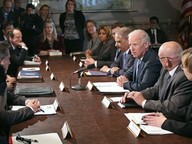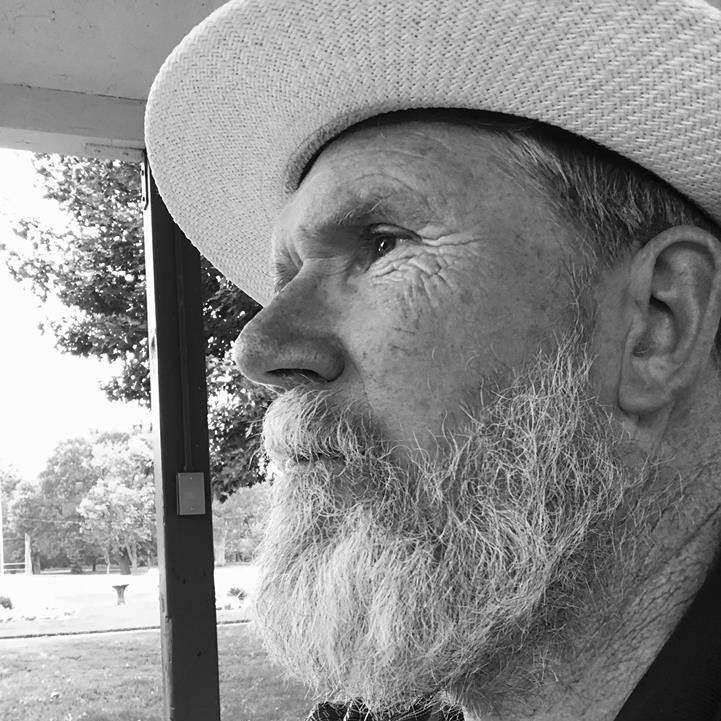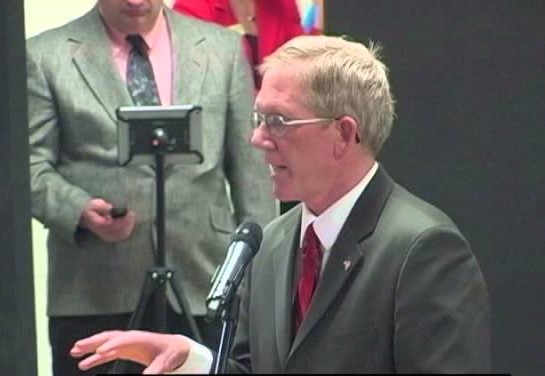-- Charles Carroll, signer of the Declaration of Independence
|
"Without morals a republic cannot subsist any length of time; they therefore who are decrying the Christian religion, whose morality is so sublime and pure (and) which insures to the good eternal happiness, are undermining the solid foundation of morals, the best security for the duration of free governments."
-- Charles Carroll, signer of the Declaration of Independence
0 Comments
"What is the foundation of the American claim to liberty? It is the unequivocal, forceful assertion of the self-evident truth that all men are created equal, that each person is endowed by God with certain unalienable rights, starting with the right to live, and that human government exists to protect those individual, unalienable rights. Don't marvel at the continued erosion of liberty when so many, including those at the highest levels of politics and the law, have lost their reverence for God, and their care and concern for the lives of the helpless innocents who are made in God's image and likeness. Can a building stand long without its foundations? America, wake up. They're not just slaughtering thousands of little babies in those abortuaries every day. They are destroying your ability to live as a free, self-governing person. They are assuring the destruction and enslavement of your posterity. They are eradicating liberty. They are destroying America."
-- Tom Hoefling  by Tom Hoefling The sight of the representatives of various national gun groups sitting down to negotiate with the Vice-President of the United States over more firearms restrictions was infuriating. What were they even doing there? What is there to negotiate? The terms of surrender? Why do these people always think they need a "seat at the table"? Don't they realize that there are some tables you should never sit at? Sorry, but what Sam Adams called the first law of nature is not negotiable. We either maintain our God-given, unalienable, natural right to self-defense or America has ceased to be. America's Founders on the Right to Keep and Bear Arms:
“Among the natural rights of the Colonists are these: First, a right to life; Secondly, to liberty; Thirdly, to property; together with the right to support and defend them in the best manner they can. These are evident branches of, rather than deductions from, the duty of self-preservation, commonly called the first law of nature. … it is the greatest absurdity to suppose it in the power of one, or any number of men, at entering into society, to renounce their essential natural rights, or the means of preserving those rights; when the grand end of civil government, from the very nature of its institution, is for the support, protection, and defense of those very rights; the principal of which, as is before observed, are Life, Liberty, and Property. If men, through fear, fraud, or mistake, should in terms renounce or give up any essential natural right, the eternal law of reason and the grand end of society would absolutely vacate such renunciation. The right to freedom being the gift of God Almighty, it is not in the power of man to alienate this gift and voluntarily become a slave.” – Samuel Adams, The Rights of the Colonists, The Report of the Committee of Correspondence to the Boston Town Meeting, Nov. 20, 1772 “The said Constitution [shall] be never construed to authorize Congress to infringe the just liberty of the press, or the rights of conscience; or to prevent the people of the United States, who are peaceable citizens, from keeping their own arms; or to raise standing armies, unless necessary for the defense of the United States, or of some one or more of them.” – Samuel Adams, Debates & Proceedings in the Convention of the Commonwealth of Massachusetts (February 6, 1788) “... whereas, to preserve liberty, it is essential that the whole body of the people always possess arms, and be taught alike, especially when young, how to use them...” – Samuel Adams, Constitutional Debates of the Massachusetts Convention of 1788 (also attributed to A Federal Farmer, the anti-federalist) “To be prepared for war is one of the most effectual means of preserving peace. A free people ought not only to be armed, but disciplined; to which end a uniform and well-digested plan is requisite; and their safety and interest require that they should promote such manufactories as tend to render them independent of others for essential, particularly military, supplies.” – George Washington, First Annual Message to Congress; Federal Hall, New York City (January 8, 1790) “The laws that forbid the carrying of arms...disarm only those who are neither inclined nor determined to commit crimes. Can it be supposed that those who have the courage to violate the most sacred laws of humanity...will respect the less important and arbitrary ones... Such laws make things worse for the assaulted and better for the assailants, they serve rather to encourage than to prevent homicides, for an unarmed man may be attacked with greater confidence than an armed man.” – Thomas Jefferson, quoted from Enlightenment philosopher Cesare Beccaria’s On Crimes and Punishment, 1764; translated by Jefferson and copied into his Commonplace Book of great quotations. “No freeman shall be debarred the use of arms ...” – Thomas Jefferson, Draft Constitution for Virginia; June 13, 1776 “The supposed quietude of a good man allures the ruffian; while on the other hand, arms like laws discourage and keep the invader and the plunderer in awe, and preserve order in the world as well as property. The same balance would be preserved were all the world destitute of arms, for all would be alike; but since some will not, others dare not lay them aside … Horrid mischief would ensue were one half the world deprived of the use of them …”. – Thomas Paine, Thoughts On Defensive War, 1775 “...in this country, every man is a militia-man...”. – Thomas Paine, The American Crisis series, # 9, dated June 9, 1780 “...who are the militia, if they be not the people of this country...? I ask, who are the militia? They consist now of the whole people, except a few public officers.” “No free government was ever founded or ever preserved its liberty, without uniting the characters of the citizen and soldier in those destined for the defense of the state.... Such are a well regulated militia, composed of the freeholders, citizen and husbandman, who take up arms to preserve their property, as individuals, and their rights as freemen.” “The great object is that every man be armed. Everyone who is able may have a gun.” – Patrick Henry, from debates during the Constitutional convention (later quoted with approval by George Washington), as quoted in Elliot’s Debates, 1836 “Guard with jealous attention the public liberty. Suspect everyone who approaches that jewel. Unfortunately, nothing will preserve it but downright force. Whenever you give up that force, you are ruined.” -- Patrick Henry (in the Virginia ratifying convention) “Let a regular army, fully equal to the resources of the country, be formed; and let it be entirely at the devotion of the federal government; still it would not be going too far to say, that the State governments, with the people on their side, would be able to repel the danger. The highest number to which, according to the best computation, a standing army can be carried in any country, does not exceed one hundredth part of the whole number of souls; or one twenty-fifth part of the number able to bear arms. This proportion would not yield, in the United States, an army of more than twenty-five or thirty thousand men. To these would be opposed a militia amounting to near half a million of citizens with arms in their hands, officered by men chosen from among themselves, fighting for their common liberties, and united and conducted by governments possessing their affections and confidence. It may well be doubted, whether a militia thus circumstanced could ever be conquered by such a proportion of regular troops. Those who are best acquainted with the last successful resistance of this country against the British arms, will be most inclined to deny the possibility of it. Besides the advantage of being armed, which the Americans possess over the people of almost every other nation, the existence of subordinate governments, to which the people are attached, and by which the militia officers are appointed, forms a barrier against the enterprises of ambition, more insurmountable than any which a simple government of any form can admit of. Notwithstanding the military establishments in the several kingdoms of Europe, which are carried as far as the public resources will bear, the governments are afraid to trust the people with arms. And it is not certain, that with this aid alone they would not be able to shake off their yokes. But were the people to possess the additional advantages of local governments chosen by themselves, who could collect the national will and direct the national force, and of officers appointed out of the militia, by these governments, and attached both to them and to the militia, it may be affirmed with the greatest assurance, that the throne of every tyranny in Europe would be speedily overturned in spite of the legions which surround it. Let us not insult the free and gallant citizens of America with the suspicion, that they would be less able to defend the rights of which they would be in actual possession, than the debased subjects of arbitrary power would be to rescue theirs from the hands of their oppressors.” – James Madison, the Father of the U.S. Constitution, Federalist # 46 “[A] government resting on a minority is an aristocracy, not a Republic, and could not be safe with a numerical and physical force against it, without a standing army, an enslaved press, and a disarmed populace.” -- James Madison, the Father of the U.S. Constitution “...the loyalists in the beginning of the late war, who objected to associating, arming and fighting, in defense of our liberties, because these measures were not constitutional. A free people should always be left... with every possible power to promote their own happiness.” - James Monroe, President of the United States “If the representatives of the people betray their constituents, there is then no recourse left but in the exertion of that original right of self defense which is paramount to all positive forms of government.” – Alexander Hamilton, Federalist # 28 “Little more can reasonably be aimed at with respect to the people at large than to have them properly armed and equipped...” “...an excellent body of well trained militia ready to take the field whenever the defense of the State shall require it. This will not only lessen the call for military establishments, but if circumstances should at any time oblige the government to form an army of any magnitude, that army can never be formidable to the liberties of the people while there is a large body of citizens, little if at all inferior to them in discipline and the use of arms who stand ready to defend their own rights and those of their fellow citizens.” – Alexander Hamilton, Federalist # 29 “Democracy is two wolves and a lamb voting on what to have for lunch. Liberty is a well-armed lamb contesting the vote.” -- Benjamin Franklin “[W]hen the resolution of enslaving America was formed in Great Britain, the British Parliament was advised by an artful man, who was governor of Pennsylvania, to disarm the people; that it was the best and most effectual way to enslave them; but that they should not do it openly, but weaken them, and let them sink gradually, by totally disusing and neglecting the militia.” “I ask, who are the militia? They consist now of the whole people, except a few public officers. But I cannot say who will be the militia of the future day. If that paper on the table gets no alteration, the militia of the future day may not consist of all classes, high and low, and rich and poor; but they may be confined to the lower and middle classes of the people, granting exclusion to the higher classes of the people. If we should ever see that day, the most ignominious punishments and heavy fines may be expected. Under the present government, all ranks of people are subject to militia duty. Under such a full and equal representation as ours, there can be no ignominious punishment inflicted. But under this national, or rather consolidated government, the case will be different. The representation being so small and inadequate, they will have no fellow-feeling for the people.” – George Mason, from debates during the Virginia state ratifying convention “Are we at last brought to such an humiliating and debasing degradation that we cannot be trusted with arms for our own defense? Where is the difference between having our arms under our own possession and under our own direction, and having them under the management of Congress? If our defense be the real object of having those arms, in whose hands can they be trusted with more propriety, or equal safety to us, as in our own hands?” -- George Mason “Before a standing army can rule, the people must be disarmed, as they are in almost every kingdom in Europe. The supreme power in America cannot enforce unjust laws by the sword, because the whole body of the people are armed, and constitute a force superior to any band of regular troops that can be, on any pretense, raised in the United States. A military force, at the command of Congress, can execute no laws, but such as the people perceive to be just and constitutional; for they will possess the power, and jealousy will instantly inspire the inclination, to resist the execution of a law which appears to the unjust and oppressive.” – Noah Webster, An Examination of the Leading Principles of the Federal Constitution (October 17, 1787) “A militia when properly formed are in fact the people themselves...and include all men capable of bearing arms. The Constitution ought to secure a genuine militia and guard against a select militia, by providing that the militia shall always be kept well organized, armed, and disciplined, and include...all men capable of bearing arms. The mind that aims at a select militia, must be influenced by a truly anti-republican principle.” “To preserve liberty, it is essential that the whole body of the people always possess arms and be taught alike, especially when young, how to use them.” “... of the liberty of conscience in matters of religious faith, of speech and of the press; of the trial by jury of the vicinage in civil and criminal cases; of the benefit of the writ of habeas corpus; of the right to keep and bear arms.... If these rights are well defined, and secured against encroachment, it is impossible that government should ever degenerate into tyranny.” – Richard Henry Lee, Letters From The Federal Farmer (1788) “That the people have a right to keep and bear arms; that a well-regulated militia, composed of the body of the people trained to arms, is the proper, natural and safe defense of a free state; that standing armies, in time of peace, are dangerous to liberty, and therefore ought to be avoided, as far as the circumstances and protection of the community will admit.” – Richard Henry Lee, proposed by the Virginia delegation to the Constitutional Convention (defining the phrase “well-regulated militia” which was used exactly in the final draft of the Second Amendment); and suggested in their state ratification debates, June 1788, to clarify the right. “The rights of conscience, of bearing arms, of changing the government, are declared to be inherent in the people.” – Fisher Ames, letter to F.R. Minoe (June 12, 1789) “That the people have a right to bear arms for the defense of themselves and their own state, or the United States, or for the purpose of killing game; and no law shall be passed for disarming the people or any of them, unless for crimes committed, or real danger of public injury from individuals...”. – Samuel Bryan, during debates on ratification of the Constitution in the Pennsylvania assembly “The power of the sword is in the hands of Congress? My friends and countrymen, it is not so; for the powers of the sword are in the hands of the yeomanry of America from sixteen to sixty. The Militia of these free commonwealths, entitled and accustomed to their arms, when compared with any possible army, must be tremendous and irresistible. Who are the Militia? They are not ourselves as politicians and lawmakers. They are those who have elected us into our positions and entrusted us with the power of preserving and carrying out their wishes. Congress has no power to disarm the Militia. Their swords, and every other terrible implement of the soldier, are the birth-right of an American. The unlimited power of the sword is not in the hands of either the Federal or State governments, but, where I trust in God it will ever remain, in the hands of the people.” – Tenche Coxe, letter to James Madison during adoption of the Bill of Rights in the United States Congress (1789) "We hold these truths to be self-evident, that all men are created equal, that they are endowed by their Creator with certain unalienable rights, that among these are life, liberty and the pursuit of happiness. That to secure these rights, governments are instituted among men..." -- The Declaration of Independence The Equal Protection for Posterity Resolution
America's Party Platform (Includes the Resolution) America's Party Leadership Pledge (Includes the Resolution) Tom Hoefling: I Believe (Includes the Resolution) "'Just and true liberty, equal and impartial liberty,' in matters spiritual and temporal, is a thing that all men are clearly entitled to by the eternal and immutable laws of God and nature, as well as by the law of nations and all well-grounded municipal laws, which must have their foundation in the former."
-- Samuel Adams, The Report of the Committee of Correspondence to the Boston Town Meeting, Nov. 20, 1772 |
Dial in to talk to
|




 RSS Feed
RSS Feed
